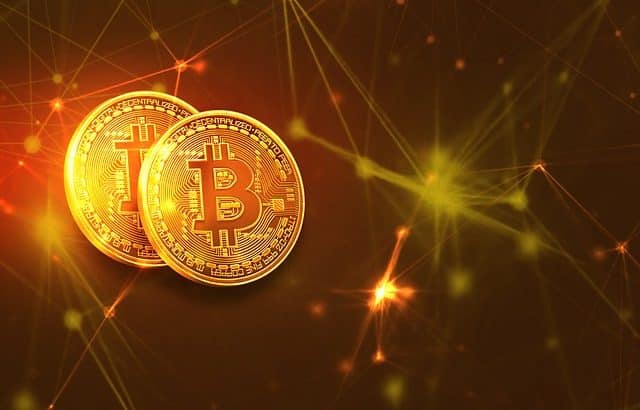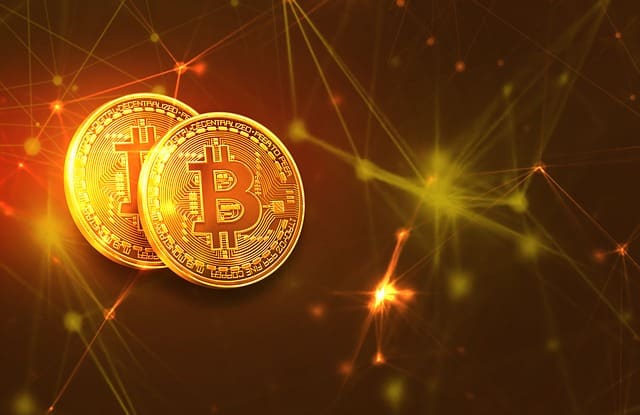The true essence of technology started centuries ago when cross-breeding animals and cross-fertilizing plants changed the way we hunted animals and farmed vegetables. The growth in agricultural output meant that the same principle could change how we performed in other areas, and that is how our civilization started.
Today, our lives have changed in ways our ancestors cannot fathom how far we have grown. We are in the era of digitization where everything is being translated into digital data for numerous purposes. Some of us might be reading this from a tablet or a smartphone. Although we have seen that we are far ahead when it comes to technology, the truth is that it is just beginning. There is going to a paradigm shift across all sectors of business and Saleh Stevens knows it is going to happen in the near future.
Impact of bitcoin and blockchain
In 2017, we saw the impact of blockchain and how bitcoin affected the shares of the stock market company Crypto Company, whose shares jumped 2,000% in a brief moment. And in another instance, the Long Island Iced Tea Corp announced that its name was changing to Long Blockchain Corp, and its shares went up 500%.
In the wake of 2017, bitcoin’s price was at $1,000, but by December, the price was at $19,000. This wild ride that is similar to the financial bubble we experienced a decade ago has caught the eye of investors. Anything that captures the mind of humanity brings out the animal nature in us, and that is how blockchain and cryptocurrencies have done.
What is blockchain?
The blockchain is the new technology that is competing with the internet because of its potential of changing everything. To dive into blockchain briefly, “blocks” are divided into numerous bundles or data that are in constant communication with each other, so that each block’s content is easily identified throughout the chain; but the owner of each block has the digital key to access the information.
That does not help, right? Miners who are companies and single algorithm writers across the world create the blocks. There is no mediation from the government, and there is no permission for creating blocks to be added to the chain. Blockchain promises freedom, the way the internet promised it when it was beginning.
Blockchain policies itself. For instance, if someone wants to launch a data exchange without following protocols, other blocks will immediately spot it, and the transaction will be aborted. This is the first of its kind where large data sets are trusted across exchanges without supervision or intermediaries.
The future of blockchain
Just like the way Google, Netflix, Amazon, and Facebook transformed media and communication, insurance companies, public services, and banks are also going to face the same paradigm shift. For instance, the data in the health sector can be uploaded to the blockchain where it can be assessed by the chain, instead of individuals, and the chain can then assess the insurable risk and price it. This brings a challenge to intermediaries.
Banking could be the first casualty of blockchain takeover. For starters, you can use your card to pay for goods because of digitization of cash, although we still have to undergo checks on the bank one is using to validate the transaction before the transaction is complete. When blockchain kicks in, everything will change.
Cryptocurrencies will manage to cross any border within seconds. Blockchain ensures that bitcoin is only spent once. It was first invented by makers of bitcoin to ensure that no fraud was present, that there was no credit or debit card required, and there was no cash limits and no central governing body. All you have to do is to purchase bitcoin from an online broker. Bitcoin can rise or fall in value, but you can use it to make transactions.
The future of bitcoin
Will banks reinvent themselves and use blockchain as a tool? The problem is that bitcoin is not reliable storage of money because its value can cut down in half within a week. Its actually better not to think of bitcoin as a currency, rather, look at it as a commodity that makes faster settlements through blockchain. There is no way bitcoin has a future as a means of payment for the majority of workers across the world.
What the future holds
We are going to see a world where routine functions that are being done across sectors being transferred to artificial intelligence through programs, making blockchain the new way of doing safe business in a shorter time frame. Banks will not have power over the system because the model of blockchain is more effective and efficient. Before we see all this in action, Saleh Stevens recommends that we have to understand this new world we are getting into before it starts to shape us.

